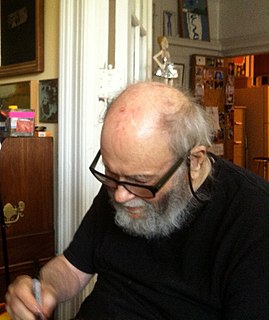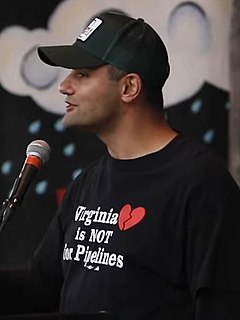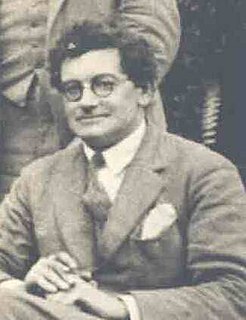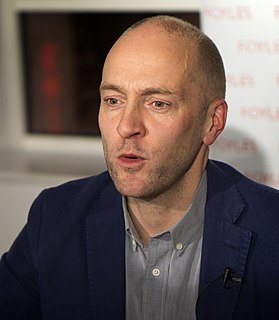A Quote by Ezra Miller
I think that artists don't make art - the art makes itself through us. I'm not the doer. I'm just along for the ride. Acting really reminds me of that because I don't write the words; I don't make the decisions. That's the director. Narcissism is a tragic condition. It must be so miserable to live trapped in a reflection that only includes the smallest version of our identities. Our true identities should have no bounds and no limits.
Quote Topics
Related Quotes
A false identity is any lie that contradicts our God-given identities through Scripture. These false identities can be created by ourselves because of sin in our lives, choices made, or wrong turns taken and the regret, guilt, and shame that follows. Other false identities are handed to us by outside sources, maybe a damaging word spoken to us by someone or a childhood of abuse. However, not all false identities are negative on the surface, such as successful, attractive, wealthy, athletic, or talented. But even those identities can become false when we place too much of our weight on them.
What makes art Christian art? Is it simply Christian artists painting biblical subjects like Jeremiah? Or, by attaching a halo, does that suddenly make something Christian art? Must the artist’s subject be religious to be Christian? I don’t think so. There is a certain sense in which art is its own justification. If art is good art, if it is true art, if it is beautiful art, then it is bearing witness to the Author of the good, the true, and the beautiful
In my own version of the idea of 'what art wants,' the end and fulfillment of the history of art is the philosophical understanding of what art is, an understanding that is achieved in the way that understanding in each of our lives is achieved, namely, from the mistakes we make, the false paths we follow, the false images we have come to abandon until we learn wherein our limits consist, and then how to live within those limits.
Any fitness expert will tell you that a strong core is the start to a strong and healthy body. The same is true with our identities. It's about strengthening our core, which requires digging past all of the surface identities that crowd our nametags and remembering that at the deepest level we are God's masterpiece. The stronger our knowledge of the core of who we are, the better we'll be able to deflect the old names and false identities that try to own us.
Having faith in the plan of salvation includes steadfastly refusing to be diverted from our true identities and responsibilities. In the brief season of our existence on earth we may serve as a plumber, professor, farmer, physician, mechanic, bookkeeper, or teacher. These are useful activities and honorable designations; but a temporary vocation is not reflective of our true identities. Matthew was a tax collector, Luke a physician, and Peter a fisherman. In a salvational sense, 'so what!'
ART Art is that thing having to do only with itself—the product of a successful attempt to make a work of art. Unfortunately, there are no expamples of art, nor good reasons to think that it will ever exist. (Everything that has been made has been made with a purpose, teverything with an end exists outside of that thing, i.e., "I want to sell this", or "I want this to make me famous and loved", or "I want this to make me whole", or worse, "I want this to make others whole.") And yet we continue to write, paint, sculpt and compose. Is this foolish of us?
Artists make art for themselves. Art is an honest expression. Artists who pander to their fans by trying to make music "for" their fans make empty, transparent art. The true fan does not want you to make music for them, they want you to make music for you, because that's the whole reason they fell in love with you in the first place.
You bring up identity politics and I think that this is really causing a divide in the American left where we're rallying too much around identities. We should celebrate our heritage, we should organize by identity, but we shouldn't advocate and push for certain identities. We shouldn't talk about women suffrage, or plight of Muslims, or refugees; we should talk about our common American values.
The most basic principle to being a free American is the notion that we as individuals are responsible for our own lives and decisions. We do not have the right to rob our neighbors to make up for our mistakes, neither does our neighbor have any right to tell us how to live, so long as we aren’t infringing on their rights. Freedom to make bad decisions is inherent in the freedom to make good ones. If we are only free to make good decisions, we are not really free.
I make my films because I'm affected by a situation, by something that makes me want to reflect on it, that lends itself to an artistic reflection. I always aim to look directly at what I'm dealing with. I think it's a task of dramatic art to confront us with things that in the entertainment industry are usually swept under the rug.
It is certain that the real function of art is to increase our self-consciousness; to make us more aware of what we are, and therefore of what the universe in which we live really is. And since mathematics, in its own way, also performs this function, it is not only aesthetically charming but profoundly significant. It is an art, and a great art.



































